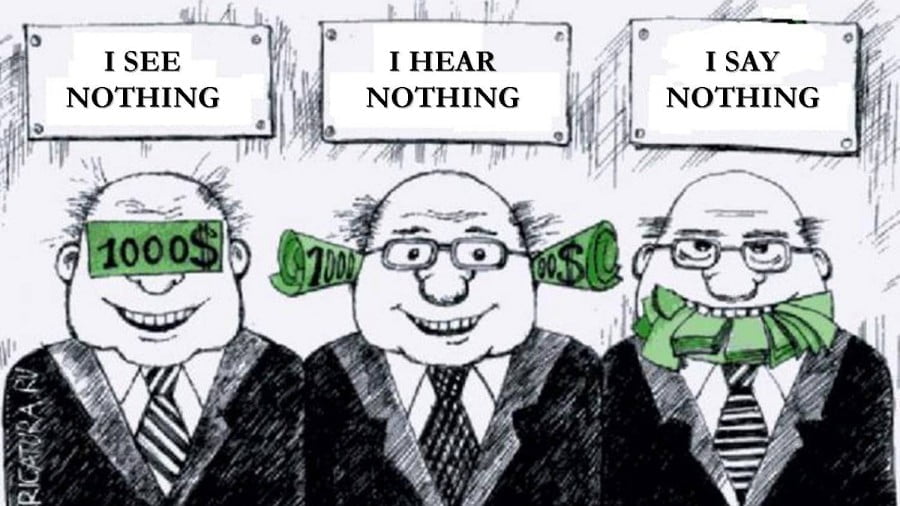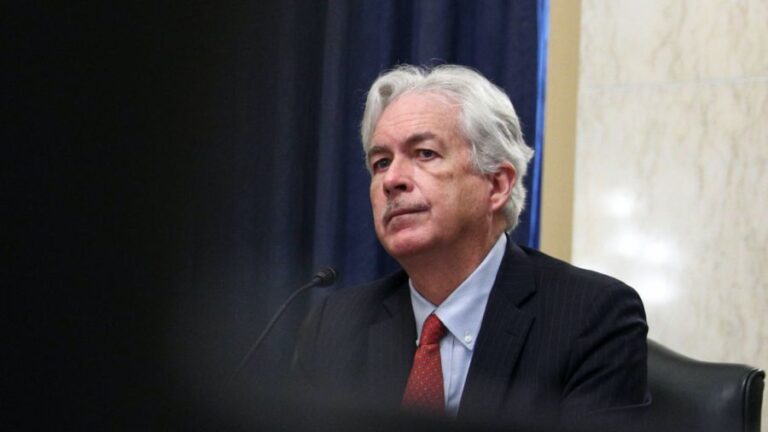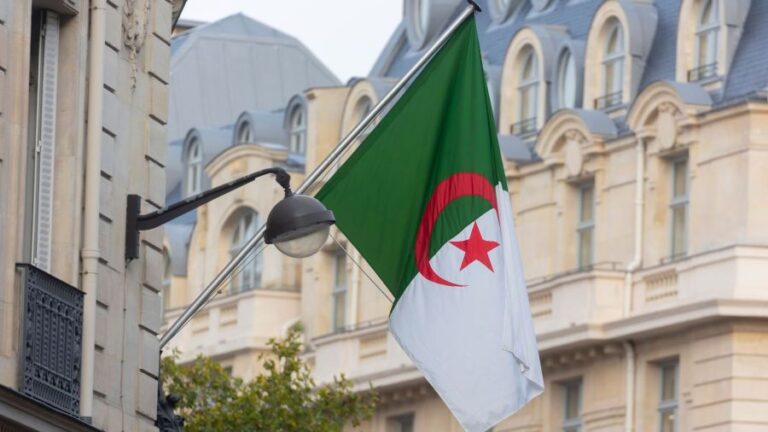The Fallacy of Western Economics; Slavery in Disguise
Economics is not a science. Economics cannot be expressed in mere reproducible and predictable mathematical terms as in the case of physics.
Physics and mathematics are subjects and manifestations of the Universal Law (Logos in Greek), whilst economics is a human-made system that is based on greed and fear. The father of economics Adam Smith in his famous book “The Wealth of Nations”, tried to establish economic “laws”. These “laws” are still acceptable 250 years later, but those “laws” are not more than indications that point to probabilities rather than the accurate predictability that physical laws provide.
Economics is made to look like a very complex field of knowledge that only savvy and seasoned economists can dare try to understand. What makes it look dauntingly difficult, especially by those who never studied it, is that not only its so-called “laws” are elastic and unpredictable, but also because of the vagueness and mystique that surround it. Where both vagueness and money converge, enter individuals and nations that are greedy enough and powerful enough to capitalize on the shades of grey in their favour. Thus far, they have been able to commit the worst kind of theft that exceeds by far any corporate theft ever exposed, let alone possible.
Simply put, the world economy is based on keeping rich nations rich and poor nations poor. This is a fact, but there is no law of economics that explains this and/or admit it, because the so-called “laws” of economics have been set in stone by the rich nations. And even if economics acknowledges such inequities, given that its “laws” have a total lack of morality, such profiteering would be regarded as smart business and successful marketing.
We are told that the value of any country’s currency is a reflection of its wealth. Wealth is, or at least used to be, described in terms of the country’s resources, manufacturing base and exports. When historically powerful nations had little resources to generate more wealth, they developed their manufacturing industries and ventured overseas, captured colonies, robbed their resources and turned them into raw material that their industries could use to generate export and wealth.
Yet now, many of those same former colonizers have little or no resources left, little or no manufacturing base left, little exports, but they continue to be considered wealthy and their currencies still rank high. They have high “Gross Domestic Products” (GDP) and high “Per Capita Incomes”. This is in total contradiction to the “laws” of economy that define what makes rich nations rich.
On the other hand, there are many nations that are resource-rich and have very a strong manufacturing base and high exports, but yet they are considered to be poor. This is also in total contradiction to the “laws” of economics that define what makes poor nations poor.
It is not a secret that industrial giants like say, Nike, pays its Vietnamese manufacturer $2-3 for a pair of shoes and then sells it for $100. The virtual slave labour context is well known. What is rarely ever spoken about however, is the decision of Western nations to keep the currencies of poor nations low in a deliberate attempt to keep them poor and to make sure that they can be used as cheap manufacturers in order to feed their own greed and remain looking wealthy.
Globalization comes into the scene to give this inequality longevity and sustainability, and of course favouring the wealthy nations and maintaining their status quo. One US Dollar could be worth 20,000 Vietnamese Dongs and what buys a standard service, say a hair-cut, in Vietnam would not be enough to buy a hair-cut in the USA as the currency values are so different, but globalization does not allow poorer nations to base their economies on their own income standards.
A worker in Vietnam or Indonesia is paid the hourly rate dictated by the economy of his country, but the purchase power of his Dong and/or Rupiah is dictated by the token value that wealthy nations decide to give those currencies. This is “justified” by giving many guises and names that fraudulently reflect honesty and transparency; names that also underpin a system of rewarding achievers. They use terms such as “free economy”, “free trade” “open market”, “competitiveness” and “laws” such as “supply and demand”, all in a manner to sugar-coat such inhumane discrepancies with a veil of lawfulness and justice.
Whilst the relatively new economic term “Purchasing Power Parity” (PPP) accounts for discrepancies in local cost and productivities based on local and domestic parameters rather than international ones, in real terms, it does not put food on the tables of poor nations and does not feed empty bellies. In real terms, it is nothing short of a “feel-good” potion and does not get reflected on poor nations’ standard of living and international economic status and clout.
But when the worker of a nation with a low exchange rate goes to buy basic commodities including food, globalization implies that he/she would have to pay the international price for rice, wheat, sugar, fuel, and medications. Even if some of those commodities are produced locally, international prices apply, unless they are subsidized by one’s government
On one hand the income ceiling of the worker is lowered by the perceived international value of their national currency, and then on the other hand the purchase power of his/her income is dictated by global terms.
The system of world economics pays in Dongs and Rupiah and charges in US Dollars.
GDP’s and “Per Capita Incomes” of nations are no longer based on the real wealth and productivities of nations, but rather on arbitrary figures that powerful nations deliberately implement in which they overvalue their own productivity and undervalue productivities of poorer nations.
And in an atmosphere of diminishing Western industrial output, how do wealthy nations manage to generate high GDP’s, one may ask? Well, they resort to many tricks, including “recycling” cheap imports. For example, a Belgian businessman can import T-shirts from China at $1 each, and then resell them for $20 each. The proceeds of his sales turnover are accounted for in Belgium’s GDP, when in fact the actual productivity was imported.
Once again, wealthy nations hide behind the façade of economics to justify such discrepancies. They also use terms such as “developed economy” to hide the crime of allowing themselves terms of reference that have “explanations” in the “science” of economy. They thus give themselves higher economic standards over nations that are doomed to have “developing” or “under-developed” tags. If those terms are stripped down to the core, all they imply is a new form of colonialism, slavery and inequity that values products and services not on their true value, but on who provides them to whom. Such terminology furthermore makes it look like it is due to their own fault and poor economic management that “under-developed” and “developing countries” are in the predicament they are, and that the onus is on them to develop their economies.
But this is not all. International prices of commodities such as sugar and rice are indeed subject to international competition, but the price of fuel is not.
Fuel that drives all engines of productivity has a price that is by-and-large fixed and dictated by oil-producing countries and greedy cartels like OPEC. For decades, OPEC had a virtual monopoly and a licence to price-fix the world’s most vital commodity, until non-OPEC producers came into the scene. But to say that current fuel prices are just and equitable would be a far cry.
The wealthy nations of the West run on the principles of “free economy”, “open market”, “free trade” and “competition”, but yet the very same West that does not allow monopoly and price-fixing is one that endorses and feeds from price-fixing of petroleum products. Domestically, high fuel prices incur high taxes and high revenues for Western governments, which of course hurt the poor sector of the Western communities the most. And internationally, high fuel prices mean that poor nations remain poor.
If the whole world had a unified and equitable economic system and the term “global economy” were a positive and constructive reality, a visit to the dentist or barber should cost the same worldwide. Reality dictates otherwise. What reality dictates is that when a barber who charges 50c for a haircut in Mumbai goes to the petrol station or the pharmacy for example, without government subsidy, he’s likely to pay what a New Yorker pays in US Dollars.
And if there were a face for the global economic thuggery that the world is reeling under, it has to be the US Dollar. Some may argue that it is the banks, the Rothschilds, and whilst this is true, the vehicle of extortion and theft is the US Dollar. When a taxi driver in India goes to fill his tank, he is inadvertently having a transaction in US Dollars, and not one directly with the Rothschilds.
It is quite ironic that the US Dollar continues to have clout at a time when America has huge economic problems. Yet, with all the crippling debt, declared and undeclared, a debt that some pundits estimate to exceed 150 trillion dollars, for as long as the “Green Back” is the preferred world reserve currency, America will continue to be able to “weaponize” its currency. In doing this however, and in imposing sanctions on other nations, America is inadvertently speeding up the process of its own economic demise. With trade and other organizations such as BRICS, the SCO, the “Regional Comprehensive Economic Partnership” (RCEP), many nations are looking for ways to liberate themselves from dependency on the US Dollar. Even the EU is feeling the brunt of the heat and searching for alternatives.
In the absence of a globally-accepted alternative, China, Russia and India are literally digging for gold and stacking it up in tons, hundreds of tons, thousands of tons. No one really knows how much physical gold they have acquired. What is clear is that all three nations, are trying to find ways to protect their economies. And given China’s economic stature that currently supersedes that of America on PPP basis, the Renminbi (Yuan) is not far from replacing the Green Back as the world’s preferred reserve currency in its own right, but the Chinese are not taking any chances, and are accumulating gold.
In doing so, China, Russia, India and many other nations are selling off their US-Treasury Bonds and replacing them with gold, physical gold. All the while, the USA is propping up its failing economy by printing money.
The current system of world economics is bound to implode and collapse. Recent financial crises are a clear indication. Whatever is built on unjust laws is bound to lead to its own destruction. Notwithstanding the achievements of European Civilization and the industrialization that came with it, greed is taking its toll and giant corporations are now undermining the same foundations of economics upon which they have built their empires of former colonial wealth. The current façade of surrogate wealth cannot last.
Many analysts foresee that the economic demise of America is a question of time, and predict that it will happen gradually. I do not profess to be an economist, but it doesn’t take an act of genius to believe that it is possible, just possible, for the house of cards that is terminally infested with termites, to just tumble and crash when its foundations can no longer carry it.
In more ways than one, this situation reminds me of a rather different, but yet similar, scenario. The former presence of Israeli forces in Lebanon was unsustainable. Something had to give. Then one morning, on the 25th of May 2000 to be exact, Lebanese people in Israeli-occupied territories woke up to realise that all Israeli forces had withdrawn overnight. I foresee a repetition of this scenario when it comes to the American economy. A time will come when America will no longer be able to print more money. A time will come when other nations of the world will dump the US Dollar. And when such events happen, just like puberty, they don’t happen gradually.
The world has been conditioned to see todays’ version of economics as a science, as a fixed mark that explains and predicts financial transactions and their destiny. Moreover, the world has been conditioned to believe that the “laws” of economics are reality checks, both pragmatic and fair, and losers have to only blame themselves and try harder, because if they do, they can be up there with the winners.
This is a fool’s promise, one that is akin to blaming victims of crime for their misfortune.
The future of what we now perceive as economics is destined to follow the path of systems that preceded it, and perhaps, hopefully, in time, humanity will look back with amazement and disbelief that such a draconian system was adopted by humanity and accepted as a guiding light that gauges their productivity performance.







